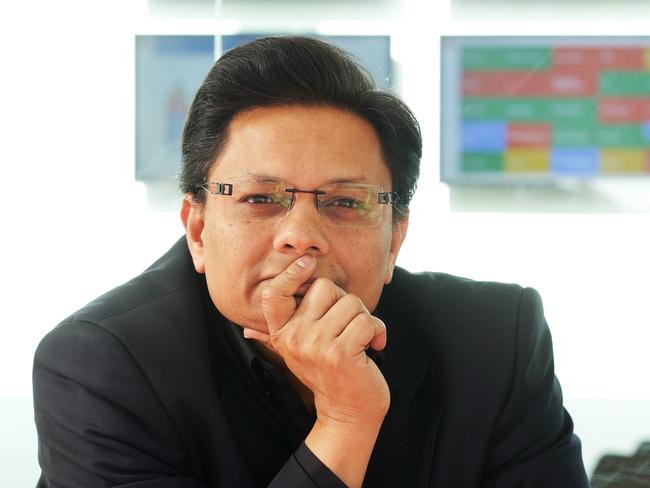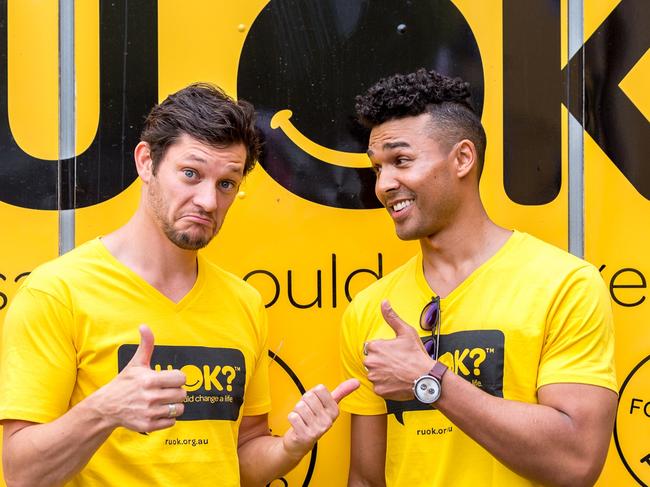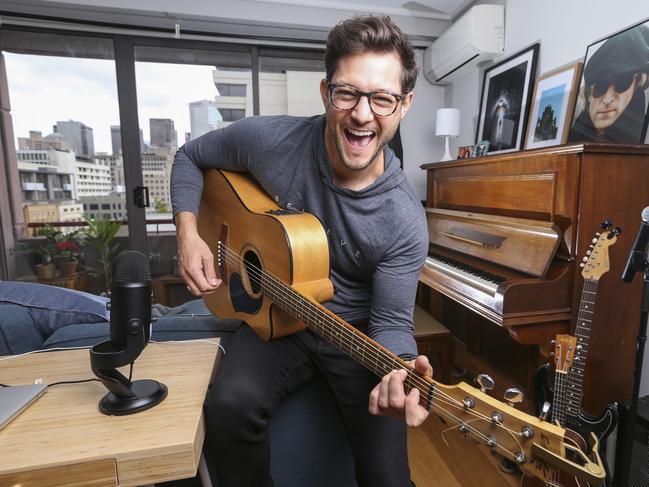What to say when someone tells you they are not OK
When we reach out to someone who appears to be struggling, are we ready for them to tell us they are not OK? Find out what you should say.
- Kiama suicide cluster: 7 shocking deaths in 7 weeks
- Grieving family’s promise after Matt’s ‘snap decision’
- Mum grieving 14yo's suicide: ’Health system failed my son’
When Kamal Sarma asked his friend if she was OK, it took her seven years to give him an honest answer.
The truth was, Mr Sarma’s friend was too afraid to speak about the mental health challenges she was facing.
“I remember having a conversation with one of my friends seven years after I asked her the question,” the Rezilium CEO and R U OK? Think Tank chair said.
“She said, ‘Kamal, you don’t know this but the day you asked if I was OK, it made a big shift happen in me because I was in a bad place’. That day she didn’t say, ‘no, I’m not OK’ but she told me knowing someone cared enough to ask helped her out of a dark place.”
Such is the power of feeling connected and understood, and it is why R U OK? Day, today, was established more than 10 years ago.

But when we reach out to someone who appears to be struggling, are we ready for them to tell us they are not OK?
“We have grown up in a culture where people automatically respond with ‘I’m fine’, so it can be daunting if people tell us they’re not,” Mr Sarma said.
“The first thing to do is to listen and be really present. They are showing incredible vulnerability.
“Your job is to not be their counsellor, or therapist, it’s to listen, encourage action and then to check in later.
“Say things like ‘I would really like to hear more about what’s happening in your life’ and ‘how does it make you feel?’
“Encourage some kind of action, a minor step. Ask things like ‘would you like to see a professional, a GP or a family member? Is there someone else who can be part of this journey with you?’

“Seek their permission to check in with them down the track. It says I may not understand how you feel but you are not alone, I am reaching out to be with you as another human being.”
Learn what to say after R U OK? at ruok.org.au
Every day in Australia, eight people die by suicide, according to Lifeline, with more than 65,000 attempting to take their life each year.
Australian entertainer and R U OK? Day ambassador Rob Mills said with men making up 75 per cent of those taking their lives, his mission was to encourage pride around seeking help.
“It comes down to men not being able to have conversations around who they are and what they feel,” Mills said.
“My main aim is to break down the stigma of seeing a psychologist, counsellor or talking about your mental health. We need to normalise it. R U OK? Day is a reminder to follow the four steps of asking if they’re OK, listening, listen without judgment.”

Mills, who lives in Melbourne with girlfriend, ABC News Breakfast presenter Georgie Tunny, took time in lockdown to complete a mental health first aid course through Lifeline.
“It’s helped me in my own progression as an adult,” he said. “Take the time to have a proper conversation with a friend, neighbour or colleague, anyone who you have noticed a change in their behaviour. It can get pretty dark and lonely for a lot of people, especially with the year we’re having, and just to know you’re there to listen helps.”
SEEK resident psychologist Sabina Read said when broaching the subject of mental health with our co-workers, it could take some time to get through
“Many people will need repeated check ins before they are willing to open up in an honest and vulnerable way, so be prepared to go back a second, third or fourth time to help foster trust and let the person know your concern is genuine,” Ms Read said.
Learn what to say after R U OK? at ruok.org.au
Lifeline: 13 11 14 or lifeline.org.au
Beyond Blue: 1300 22 4636 or beyondblue.org.au
Beyond Blue’s coronavirus support service: 1800 512 348 or coronavirus.beyondblue.org.au
Kids Helpline: 1800 55 1800 or kidshelpline.com.au
Headspace: 1800 650 890 or headspace.org.au
Originally published as What to say when someone tells you they are not OK



